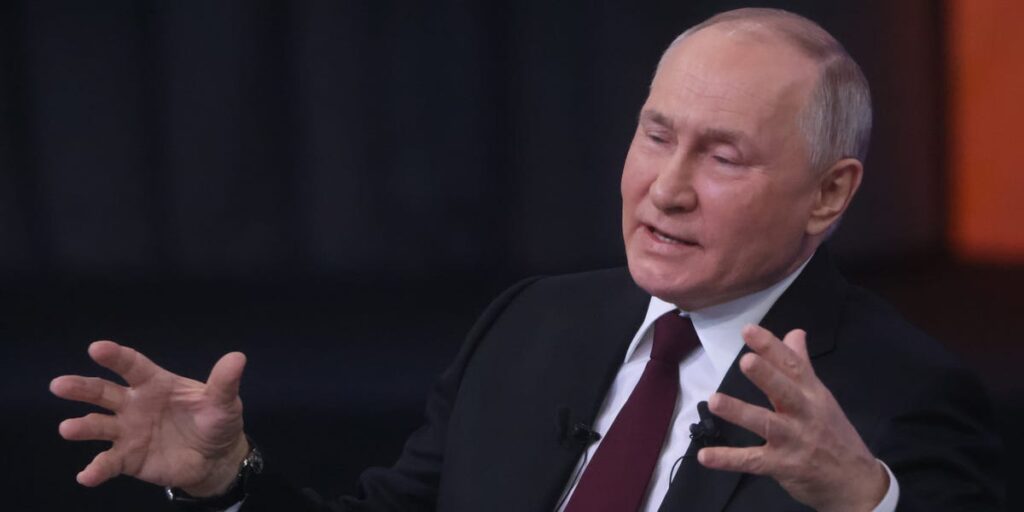The BRICS Block: Putin’s Vision for a New Parliamentary Framework
In a bold stride to reshape the global geopolitical landscape, Russian President Vladimir Putin is advocating for a more formalized structure within the BRICS bloc. Putin recently floated the concept of a BRICS parliament, a move that would potentially cement BRICS’ role as a formidable counterweight to Western-led alliances like the G7.
BRICS—an acronym representing the original member countries Brazil, Russia, India, China, and South Africa—has seen a significant shift since its inception in 2009. Initially, the group served as an informal gathering of burgeoning economies coming together to discuss mutual interests. However, recent developments signal its ambitions extending far beyond that of a discussion forum.
Expansion and Influence
This year, under Russia’s chairmanship, BRICS has initiated a waves-making expansion by welcoming Saudi Arabia, Iran, Ethiopia, Egypt, Argentina, and the United Arab Emirates into its fold. The expanded bloc enhances its leverage in global economic negotiations, particularly given the inclusion of major oil-producing countries like Saudi Arabia and the UAE.
As Rich Lesser from the Boston Consulting Group pointed out, BRICS now commands over 40% of the world’s oil production. Such a coalition makes BRICS a critical entity in any global economic conversation.
Putin’s Proposal for a BRICS Parliament
During a recent BRICS Parliamentary Forum in Saint Petersburg, Putin remarked on the absence of an official parliamentary body for the bloc. "BRICS does not have its own official parliamentary organization at this stage, but I believe that this idea will definitely be materialized somewhere down the road," he stated, according to an official Kremlin transcript. While the Russian President did not elaborate on the proposed structure, his comments underline Russia’s endeavor to influence the bloc more substantially during its tenure as chair.
Rising Interest and Applications from the Global South
Interest in BRICS from countries across the Global South is growing. Recently, Thailand and Malaysia have both shown interest in joining, with Thailand having already submitted its formal request and Malaysia’s Prime Minister indicating preparation for its application.
Economic and Political Implications
An expanded and more structured BRICS could significantly alter the global economic order, presenting a potent alternative to Western economic hegemony. For Russia, facing severe economic sanctions from Western countries, BRICS presents an avenue to fortify its economic resilience. Notably, Russian Foreign Minister Sergey Lavrov announced last month that BRICS members are developing a payment platform to circumvent the U.S. dollar.
Internal Divergences
Despite its increasing unity and strength, the BRICS bloc faces internal challenges. The diverse economic and geopolitical interests of its members often present hurdles to cohesive action. For instance, India is delicately balancing its relationships with the U.S., China, and Russia. Indian Prime Minister Narendra Modi’s recent visit to Russia highlights this balancing act, as India needs Russia to counter China’s influence, despite all three being BRICS members.
The Road Ahead
While the road to a unified BRICS parliamentary framework may be fraught with challenges, the bloc’s evolving role on the global stage is undeniable. As Ian Bremmer, President of the Eurasia Group, remarked, "BRICS is a low-stakes forum for these countries to meet and talk about common grievances that the U.S. and the West should pay at least slightly more attention to."
As the world watches, BRICS continues to evolve, redefining global alliances and introducing new dynamics into the international order. Whether or not Putin’s vision of a BRICS parliament comes to fruition, the bloc’s expanding influence is a signal of changing times in global geopolitics. For more official information, visit BRICS’ homepage.
